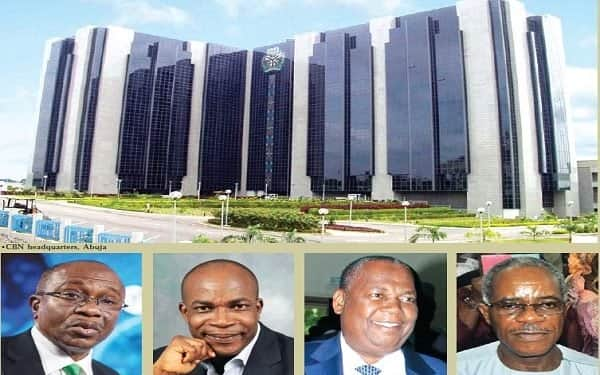
Banks are strong enough to withstand the COVID-19 pandemic impact, the Central Bank of Nigeria (CBN) stress test has revealed.
The Deposit Money Bank’s (DMB’s) balance sheets and profitability margins are also rated high.
“Stress test on the banking industry confirms a resilient sector that is able to survive the effects of COVID-19 pandemic and volatility in the oil market,” a member of the CBN-led Monetary Policy Committee (MPC) Festus Adenikinju, said.
Adenikinju, a professor of Economics at the University of Ibadan, added that a data from the CBN on the Banking System Stability showed that the banking system remains resilient, strong, and coping well under the current challenging environment.
In his personal note to the MPC on the state of the economy and the banking sector released at the weekend, Prof. Adenikinju said, the Financial Soundness Indicators (FSI) is solid.
According to him, the Capital Adequacy Ratio (CAR) and Non-Performing Loans (NPLs) ratio are trending in the right direction.
The Loan to Deposit Ratio (LDR) policy has boosted aggregate credit to the economy without impacting negatively on the NPLs ratio.
He said measures of bank performance like assets, deposits and credits to the economy, continue on a northward trajectory.
Adenikinju also said banking credit grew marginally between May and June.
The professor’s confidence in the banking sector contradicted Fitch Ratings’ report, indicating that the Cash Reserve Ratio (CRR) policy being implemented by the CBN will affect banks’ returns and ability to lend. The CRR is 27.5 per cent of banks’ deposits kept with the apex bank at zero interest to curb money supply and keep inflation in check.
In a report, Fitch said banks are being punished at a time when most other countries are giving lenders extra leeway to fight the economic fallout of the Coronavirus.
Adenikinju insisted that the increase in aggregate credit to the economy in spite of the pandemic suggests that the economy is responding well to current policy measures.
Total banks credit to the economy increased marginally from N46.6 trillion in Aprilto N46.7 trillion in May.
The equity market indicators like market capitalization, increased by 5.83 per cent from N12.0 trillion at end of April to N12.7 trillion by mid- July
The foreign exchange market continues to experience significant pressures as the exchange rate of the naira to the United States (U.S.) dollar rose from N443.89/$ in May to N447.71/$ in June at the Bureau de Change (BDC) window and from N386.17/$ to N386.39/$ at the Investors’ and Exporters’ (I&E) window.
The depreciation in both markets was driven by both fundamental factors and speculative activities of economic agents.
External reserves decreased from US$36.49 billion in May to $35.77 billion by June. The current account balance as a share of GDP stood at -4.25 per cent in this year’s first quarter (Q1 2020).
Adenikinju added that the fiscal operations of the Federal Government indicated that revenues underperformed with negative variance of -48.8 per cent and expenditure by -4.89 per cent. Rising share of debt service in government expenditure is worrisome and would expectedly worsen due to the impact of COVID-19 pandemic and the downturn in the global oil market.
He said: “While oil prices continue to be strong and equity markets rebound in many advanced and emerging economies, the rise in unemployment and weak economic growth for second quarter 2020 in many countries are major challenges.
“Aggregate demand and aggregate supply remain weak and volatile. In short, the immediate outlook of the global economy is still tenuous and volatile.”
The trade tensions between the United States and China, and the lack of clear guidance on the nature of exit agreement between the United Kingdom (UK) and European Union (EU) at the end of 2020 will also affect global recovery.
The MPC member said: “World trade is already projected to contract by -11.5 per cent in 2020. The recovery in 2021 will be influenced by how existing geopolitical issues are resolved and the emergence of an effective vaccine for the coronavirus. Central banks in most countries continue to implement quantitative easing to support economic growth, restore market confidence and boost aggregate demand.”
The professor said staff estimates on the domestic economy shows that the annual real Gross Domestic Product (GDP) growth for 2020 would be between -1.31 per cent and -1.65 per cent.
“This is significantly higher than the World Bank, International Monetary Fund (IMF) and even the National Bureau of Statistics (NBS) projections for Nigeria for 2020,” he added
By Collins Nweze













